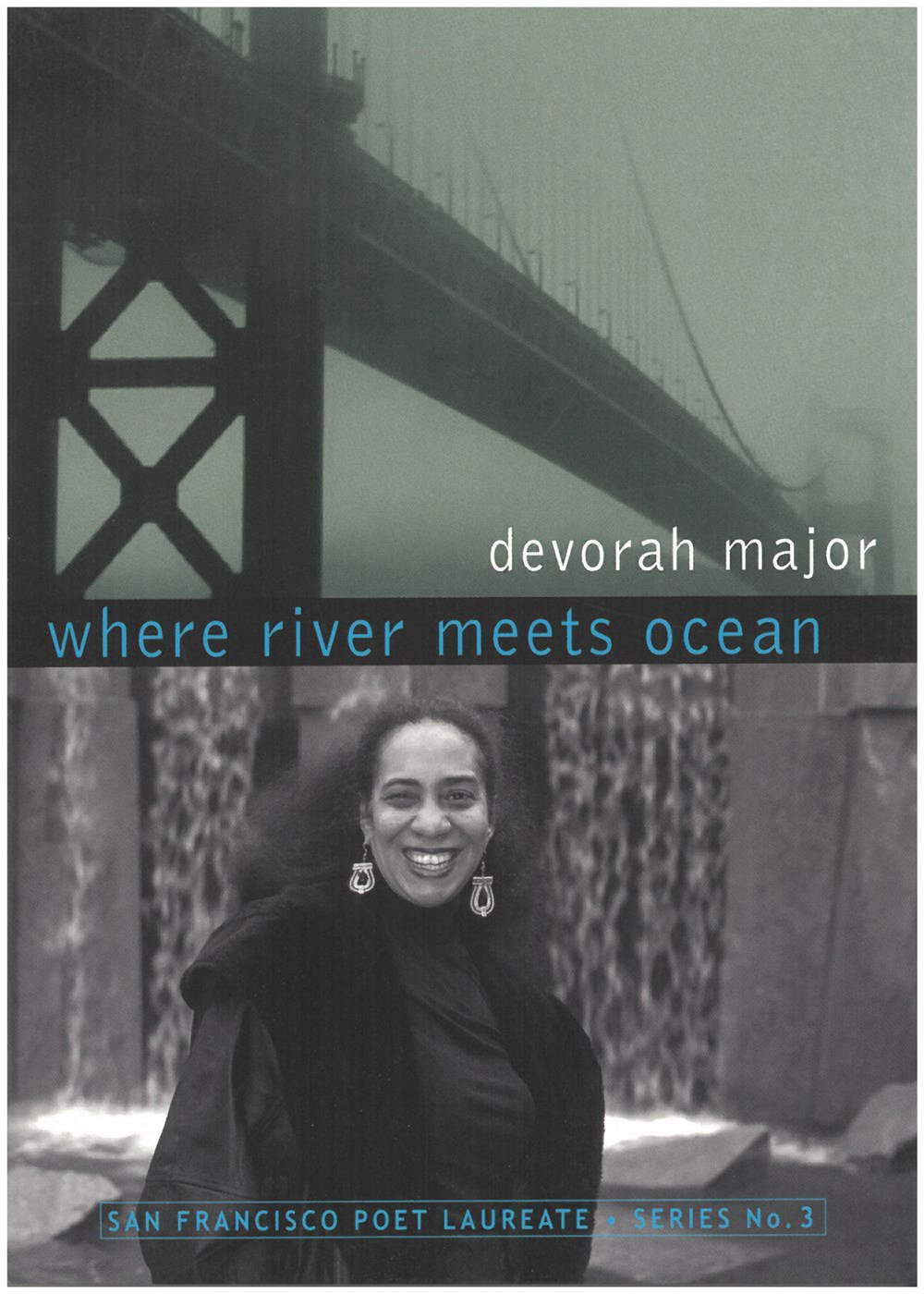and then we became
Top Poetry Books of Fall 2016 - Library Journal
Who are we humans, with our differences and our personal histories, mythologies and urgencies, as well as our collective struggles and dreams? Why are we here?
Questions of culture, ethnicity and gender—and the denial of those borders—infuse these poems, rich with social and political commentary, and filled with compassion, love, anger and hope. Even while writing of one child, one homeless person, one soldier, one war survivor, devorah major connects these individual stories to a contemplation of humanity's place in the cosmos
"Four sections of this long-awaited volume: ‘spirit', 'other selves', ‘fragile', ‘whole' reveal a writer and life experiencer at the height of her poetic powers. Whenever I become too self-satisfied in intellectual games, I find my heart upended by these impassioned verses of humanity and what it means to be fully alive and present. From 'nommo-how we come to speak' to 'war memories', this former San Francisco Poet Laureate and worldly cosmonaut handles politics, war, and love in equal measure as the best poets of the people do. Pablo Neruda. Bob Kaufman, June Jordan. Wanda Coleman. Ears to the ground and eyes to the sky.”—Giovanni Singleton
"In and then we became, devorah major steps out of the way and allows creation to craft creation. The structures and paints of her descriptions have incredible range of effect: the ascension into the first history a free people teach, the short story perceived through possession, the melodic start-stop motion of a debilitated life, the flash of your torturer’s dream; all part of a collaged panoramic of spirit and flesh. She is at home in all dimensions of her subject. The voices of this work walk straight toward you holding out moments of violence, lament, beauty, and invincibility for you to embrace, offering a face to become your own."—Tongo Eisen-Martin, author of Someone's Dead Already
"devorah major remains one of our premier storytellers. She wraps myths and headlines, family lore and visions in language that is both delicate and tough, enticing us to dive in even though the poem she serves up may have dangerously sharp edges. Her poems eagerly call forth the African deities who give her voice as she wrestles with the mysteries of this plane from why a woman may want to be a soldier to how we learn to love. These poems are like prayers to which you return each night."—Jewelle Gomez, author of The Gilda Stories and Name Poems
"I hate to turn on the radio each morning where I hear that men haven't changed, staying in office for generations and generally acting the fool. devorah major uses the many voices of women to explore a world that we know less about than the oceans of Enceladus. The great thing about devorah’s book is that we can't interrupt as she rolls out the indictment poem by poem.”—Ishmael Reed
"major’s book could not have come at a more appropriate time as now when the clamor of despair is being spoken into the universe. But as many of us know, these are also times for listening to our hearts and minds and doing what’s right for the greater majority, the global world of which we are a part. Reading and really reflecting on the messages in these poems will help us to become our better selves."—Opal Palmer Adisa
devorah major, a California born, San Francisco raised, granddaughter of immigrants, documented and undocumented, served as San Francisco’s Third Poet Laureate (2002-2006). She has two novels published: Brown Glass Windows and An Open Weave. In addition to her four poetry books and four poetry chapbooks, she has had two biographies for young adults, and a host of short stories, essays, and individual poems published in anthologies and periodicals.
Among her awards is a First Novelist award from the Black caucus of the ALA for An Open Weave and a PEN Oakland Josephine Miles Literary Award for her poetry book street smarts. major was given a commission by the Oakland East Bay Symphony with composer Guillermo Galindo to create a symphony with spoken word and chorus, Trade Routes, that premiered in 2005. In June 2015 she premiered her poetry play Classic Black: Voices of 19th Century African-Americans in San Francisco at the San Francisco International Arts Festival featuring major, Brian Freeman, and the Destiny Mohammed Quartet.
devorah major performs her work nationally and internationally, including places such as Venezuela, Jamaica, Italy, Belgium, Bosnia, Germany and France with and without musicians. Her passion for writing and performing her work is almost equaled by her delight in teaching poetry to people of all ages from young readers to seasoned elders. In addition to writing and performing Ms. Major is poet-in-residence at the San Francisco Fine Arts Museums and Senior Adjunct Professor at California College of the Arts.

